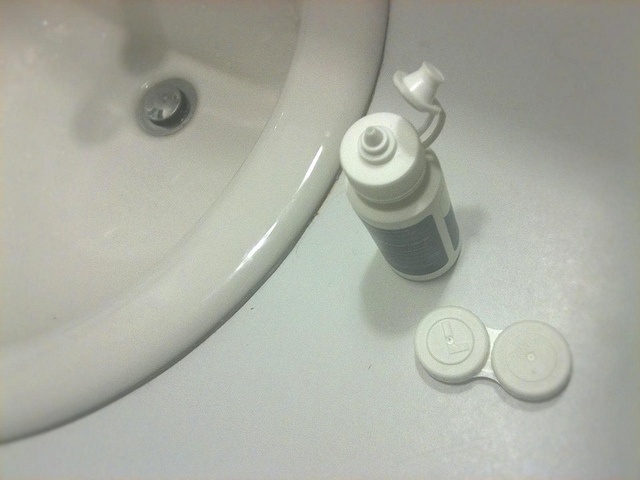What are the risks?
Why is wearing contact lenses in pools risky? No water of any kind (swimming pool, hot tubs, showers, tap water, etc.) should ever come into contact with contact lenses. This is because water is a breeding place for micro organisms that might cause serious eye infections. Since contact lenses are porous, they can also absorb chlorine and various chemicals found in the water, which can in turn lead to potentially sight-threatening conditions. But, if you do like swimming a lot and you suffer from farsightedness or nearsightedness, here are a few ways to help you out.
1. Use waterproof swimming goggles if you want to use contact lenses.
But be extra careful when doing this. If ever you feel that water from the pool has entered your eyes, immediately remove the lenses and rinse your eyes. Daily disposable contact lenses also might be helpful because you do not need to clean them every day. They are designed to be thrown away after one use. You get a new pair daily.
2. Consider investing in prescription goggles.
If you swim a lot, consider getting waterproof prescription swimming goggles, which are way better than using contacts and you don’t run the risk of catching any unwanted infections.
3. Consider corrective surgery.
You might consider laser surgery for eyes to get your eyes corrected for either farsightedness or nearsightedness if you are an active swimmer. You won’t require any lenses or glasses in the future.
4. Overnight Vision Correction
There is another solution, called Overnight Vision Correction or Corneal Refractive Therapy, in which specially shaped contact lenses are worn while sleeping. The lenses reshape the cornea overnight to correct sight problems. After a two- to three-week adjustment period, when you remove the lenses in the morning you will have perfect natural vision lasting for up to 72 hours. You won’t be needing contact lenses for the rest of the day! This process is called orthokeratology, and it is a simple, nonsurgical way to correct your vision temporarily.
5. Use UV-protective goggles to avoid damage from sun.
UV radiation can aggravate already sensitive eyes and has been implicated in long-term macular damage.
6. Always maintain proper lens care to avoid infections.
Proper lens maintenance reduces the chances of contamination, since protein and lipid build up helps the micro organisms to attach in between lenses and your eyes.
7. Maintain good hygiene.
Good hygiene is of utmost importance while wearing contact lenses. Also, never swim in beaches with signs that warn of unclean or contaminated water, and replace and clean your lens cases frequently. Seek medical attention immediately if you experience any of the following:
Redness in the eyes Irritated or painful eyes Blurred vision Sensitivity to light.
8. Keep spare lenses handy at all times.
Always keep an extra pair of lenses with you, as well as the lens solution. You never know when you might need them.
Last but not least, take care of your eyes! They are your precious assets that bring light to your world. Happy swimming! Featured photo credit: steve morgan via flickr.com

